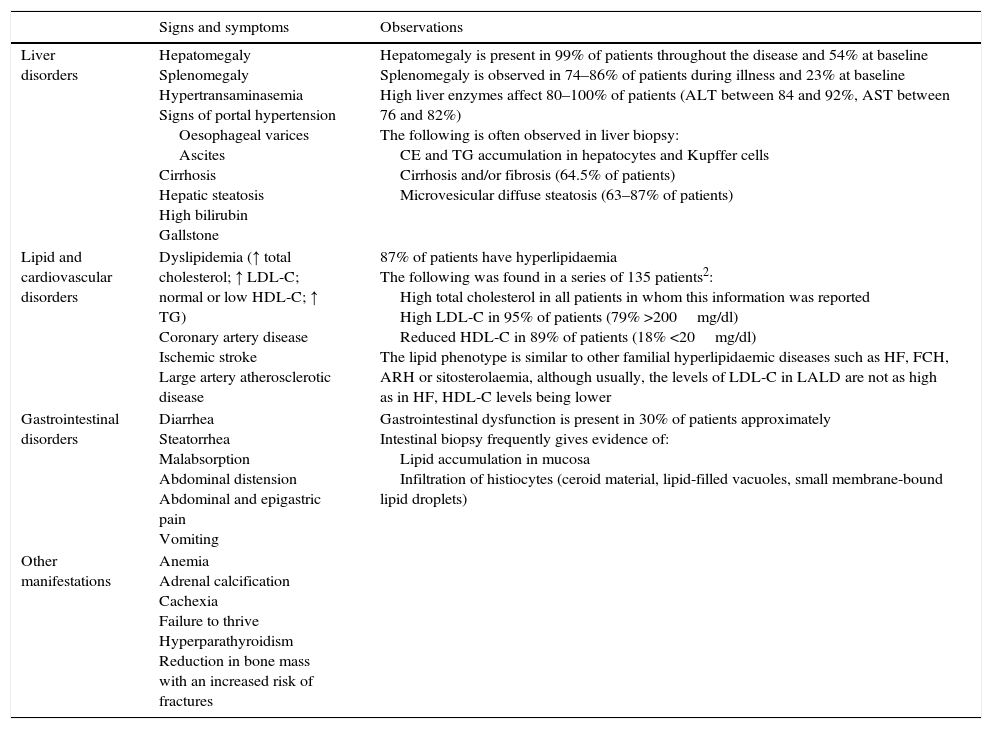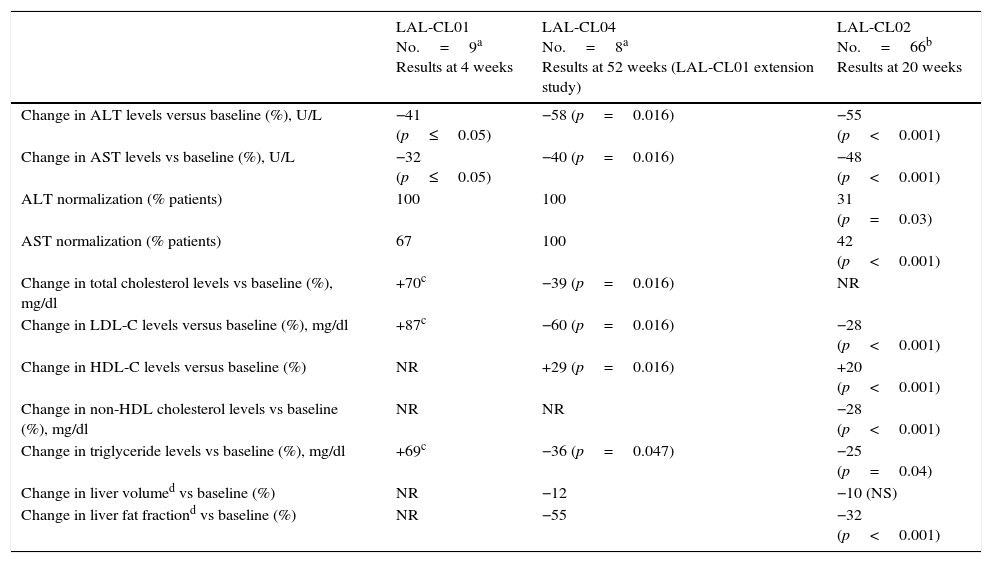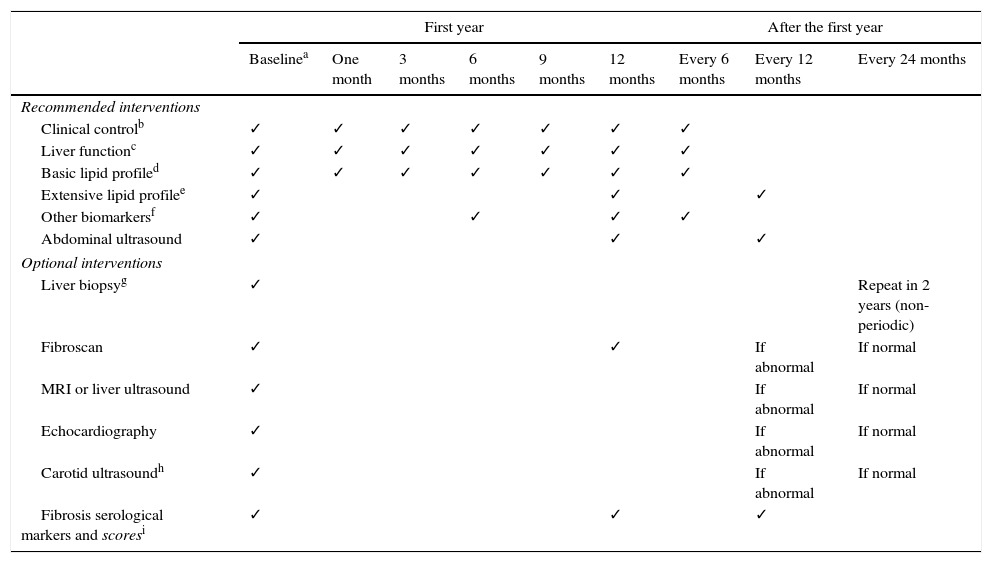Lysosomal acid lipase deficiency (LALD) is an ultra-rare disease caused by a congenital disorder of the lipid metabolism, characterized by the deposition of cholesterol esters and triglycerides in the organism. In patients with no enzyme function, the disease develops during the perinatal period and is invariably associated with death during the first year of life. In all other cases, the phenotype is heterogeneous, although most patients develop chronic liver diseases and may also develop an early cardiovascular disease. Treatment for LALD has classically included the use of supportive measures that do not prevent the progression of the disease. In 2015, regulatory agencies approved the use of a human recombinant LAL for the treatment of LALD. This long-term enzyme replacement therapy has been associated with significant improvements in the hepatic and lipid profiles of patients with LALD, increasing survival rates in infants with a rapidly progressive disease. Both the severity of LALD and the availability of a specific treatment highlight the need to identify these patients in clinical settings, although its low prevalence and the existing clinical overlap with other more frequent pathologies limit its diagnosis. In this paper we set out practical recommendations to identify and monitor patients with LALD, including a diagnostic algorithm, along with an updated treatment.
La deficiencia de lipasa ácida lisosomal (DLAL) es una enfermedad ultrarrara causada por un error congénito del metabolismo lipídico, que se caracteriza por el depósito de ésteres de colesterol y triglicéridos en el organismo. En pacientes con nula función enzimática la enfermedad se inicia en el período perinatal y es inevitablemente mortal durante el primer año de vida. En el resto de los casos el fenotipo es heterogéneo, aunque la mayoría de los pacientes desarrollan hepatopatía crónica y pueden presentar enfermedad cardiovascular prematura. Clásicamente, el tratamiento de la DLAL ha consistido en el uso de medidas de soporte, que no evitan su progresión. En 2015, las agencias reguladoras aprobaron el uso de una LAL recombinante humana para el tratamiento de la DLAL. Dicho tratamiento de sustitución enzimática a largo plazo se ha asociado con mejorías significativas de los parámetros lipídicos y hepáticos, incrementándose la supervivencia en lactantes con enfermedad rápidamente progresiva. La gravedad de la enfermedad, junto con la reciente disponibilidad de un tratamiento específico, hace especialmente relevante la necesidad de identificar a estos pacientes en la práctica clínica, aunque la baja prevalencia de la DLAL y el solapamiento clínico con otras enfermedades más frecuentes dificulta su reconocimiento. Con base en la evidencia científica publicada y la experiencia clínica e investigacional de los autores, el presente documento incluye recomendaciones prácticas para la identificación y la monitorización de los pacientes con DLAL, incluyendo un algoritmo diagnóstico, junto con una actualización de su tratamiento.











